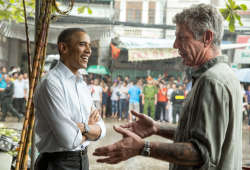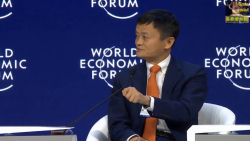
Nationalism was essential when economies were based on resources, machines or muscle. In the era of clouds and devices it’s increasingly irrelevant. The global nature of our existential crisis makes nationalism an outright impediment to the survival of mankind.
Thus, it’s no coincidence that nationalism has been a rising force in the decade now ending. Just as it concentrates the mind to know you’re to be executed in the morning, so it is for leaders and political movements. Seeing sunset in the distance you do what you can and ignore the consequences you know are coming.
The Trump election acts as a midpoint and permission slip for all this. Nationalism was already on the march, in Europe, in the Middle East, and in Asia, through the agency of Russia, when Trump came to office. But Trump has given nationalistic impulses around the world permission to act. There is no American opposition to ultra-nationalism anywhere, no alliance worth protecting, no counter example to follow.
Thus, nations push their boundaries outward, fearing any force that might threaten their power, and ignoring the natural internationalism essential to economic growth and climate action.
That’s why Brazil is going after its rain forest. That’s why India is going after Kashmir. It is why China is going after Hong Kong. That’s why England wants to detach from Europe, why Eretz Israel is a thing, why Saudi Arabia seeks dominion over its whole peninsula. If you can afford it, nationalists think, seize the day. The window is closing.

But an economics built on human minds isn’t like one built on muscles or machines or resources. The smart people get through the firewall and pass along what they learn to people eager to know the truth when things go bad. This leads to a questioning of government, to reduced compliance by natural elites, to the rise of underground information economies and, gradually, the death of order.
You can see it happening already where all this started, in Russia. Vladimir Putin dreamed of re-creating the Soviet Union, of first capturing the “near abroad” and then cowing eastern Europe. It almost worked, but oil is all he has. Modern Russia has no manufacturing, its farms are increasingly inefficient, its economy has been weakening for decades. Its people are drunk, aging out, and their numbers are declining. Its human capital account is being bankrupted.
This is not news to people inside Russia, despite the regime’s efforts at repression. The pushback is growing. People are no longer obedient as they were. Oil revenues are also in decline.

Human minds demand freedom. They want ordered liberty and access to capital, but the autonomy of your mind stands above all this. This is something no autocrat can seize. The appearance of obedience isn’t enough.
We live in an increasingly interconnected world, an increasingly interconnected economy. An idea, or an algorithm, can reach the global market very quickly. Capital is hungry for these ideas. They’re what money is made of.

The Resistance is universal. The moral conflict between nationalism and liberty is global. But like the Civil War it’s a conflict that’s happening in 10,000 places.
African economies are growing. They’re growing fastest in countries with the most democratic choice, the greatest intellectual freedom, the most open markets. People are voting with their minds before their feet, and the empires they create are expanding ever outward.

The smartest Chinese companies know this, and they’re busy offering services that seize these opportunities. Alibaba’s cloud is built with actual applications, virtual storefronts that support accounting, asset management, and marketing through sophisticated databases American enterprises had to pay millions to get just a decade ago.
The key to all this is corporate power, which can withstand governments by simply moving, or withholding investment. Business confidence reflects consumer confidence, and these economic forces underly both the popular and economic power national governments depend upon. Mess with that in the name of some nationalistic project and you’re going down.

India’s government is going to find the same. Actions against civil society whether in the name of Hinduism or nationalism, are bad for business. They create recessions and cost people money. Modi’s support is entirely dependent on business. He’s threatening that. It will bring him down.

The news in America is the same, even if no one is reporting it.

And after this, the rest of it will be rolled back as well. An American government that gives the Cloud Czars the freedom, liberty, and access to human capital they want will find itself building an economy that can rule the world. Any country that wants to participate will have to pay the same price we’re going to pay for that, freedom.
It will be a struggle. But if mankind is to have a future the struggle will be won. I don’t want to have any grandchildren until the Second American Civil War starts to ebb away.
I predict that will happen in 2021.










